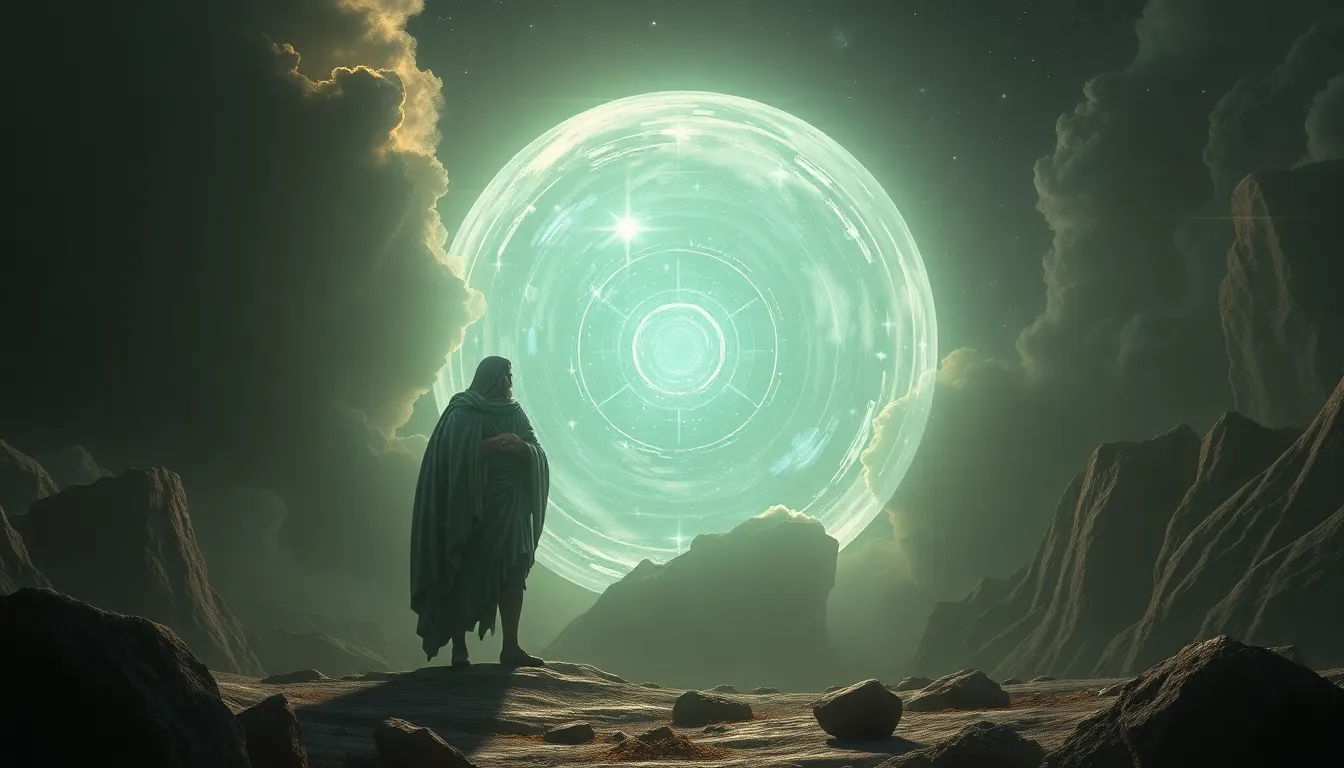The Myth of Uranus: What We Can Learn from His Story
I. Introduction
Uranus, the primordial god of the sky, holds a significant place in Greek mythology. His story, woven into the fabric of ancient tales, offers profound insights into human behavior and the nature of power. Mythological figures like Uranus serve not only as characters in stories but also as archetypes that reflect the complexities of human relationships and societal structures. This article aims to delve into Uranus’ myth, exploring his origins, his role in creation, his downfall, and the lessons we can learn from his story.
II. Who is Uranus?
Uranus, known as Ouranos in Greek, is one of the primordial deities born from Chaos. He personifies the sky and is often depicted as a vast expanse covering the earth. His parentage is somewhat ambiguous, as he is sometimes described as having emerged spontaneously from Chaos itself, while other myths suggest that he was born of Gaia, the Earth.
Uranus is the father of many significant figures in Greek mythology, including:
- The Titans
- The Cyclopes
- The Hecatoncheires (the hundred-handed ones)
In ancient Greek culture, Uranus symbolizes the heavens and the natural order, representing the overarching authority of the cosmos. His existence embodies the connection between the earth and the sky, a theme prevalent in many mythological narratives.
III. The Role of Uranus in Creation Myths
Uranus’ relationship with Gaia is central to the creation myths of Greek mythology. Together, they represent the union of earth and sky, giving birth to various deities who would shape the world.
The birth of the Titans, in particular, highlights the significance of Uranus in the mythological hierarchy:
- Uranus and Gaia produced twelve Titans, including Cronus, Rhea, and Oceanus.
- These Titans later played crucial roles in the mythology of the Greek pantheon, including the overthrowing of Uranus himself.
Creation myths like that of Uranus and Gaia provide insight into ancient Greek societal values, illustrating themes of fertility, power, and the cyclical nature of life and death.
IV. The Downfall of Uranus
Despite his importance, Uranus’ reign was marked by tyranny. His oppressive rule prompted rebellion among his offspring, leading to his eventual downfall. One of the most significant events in this narrative is the revolt led by Cronus, one of his sons.
Reasons for rebellion include:
- Uranus’ fear of his children led him to imprison them within Gaia, causing her immense pain.
- Gaia, in her anger, conspired with Cronus to overthrow Uranus.
In a decisive act, Cronus castrated Uranus, leading to his fall from power. This myth encapsulates themes of power, fear, and the cyclical nature of generations, illustrating how oppressive authority can lead to rebellion and change.
V. Lessons on Power and Authority
The story of Uranus offers critical lessons on power and authority. The consequences of his oppressive rule serve as a warning against tyranny:
- Oppressive leadership can incite rebellion and lead to downfall.
- Change is inevitable, and power structures are often challenged by those they seek to control.
These themes resonate in modern governance and leadership, reminding us of the importance of fairness, compassion, and the need to listen to those we lead.
VI. The Legacy of Uranus in Mythology
Uranus’ influence extends beyond his own myth. He shaped the narratives of subsequent myths and deities, establishing a foundational aspect of Greek mythology. His legacy includes:
- Inspiration for other mythological figures, including Zeus, who ultimately overthrew the Titans.
- Representation in art and literature, often symbolizing the sky and the divine.
- His story has been adapted in various forms, reflecting changing societal values and understandings of power.
The cultural significance of Uranus continues to be explored in contemporary interpretations, reminding us of the timeless nature of myth.
VII. Psychological Insights from Uranus’ Myth
Uranus embodies the archetype of the father figure in mythology, providing insights into family dynamics and the impact of authority on identity. His relationships, particularly with Gaia and his children, reveal complexities in family structure:
- The tension between Uranus and Gaia illustrates the struggle between creation and destruction.
- His conflict with Cronus highlights the generational conflicts that often arise in familial relationships.
Understanding these dynamics can shed light on the psychological impacts of betrayal and conflict, providing a framework for analyzing identity and relationships in both myth and real life.
VIII. Conclusion
Uranus’ story is a rich tapestry of creation, rebellion, and the lessons of power. His narrative reflects essential truths about human behavior, authority, and the cyclical nature of life. As we explore these mythological lessons, we find their relevance in today’s world, reminding us of the enduring nature of myths and their capacity to teach us about ourselves and our societies.
In conclusion, the myth of Uranus serves as a powerful reminder of the complexities of human relationships, the nature of power, and the inevitability of change. As we continue to engage with these ancient stories, we uncover timeless truths that resonate with our contemporary lives.




